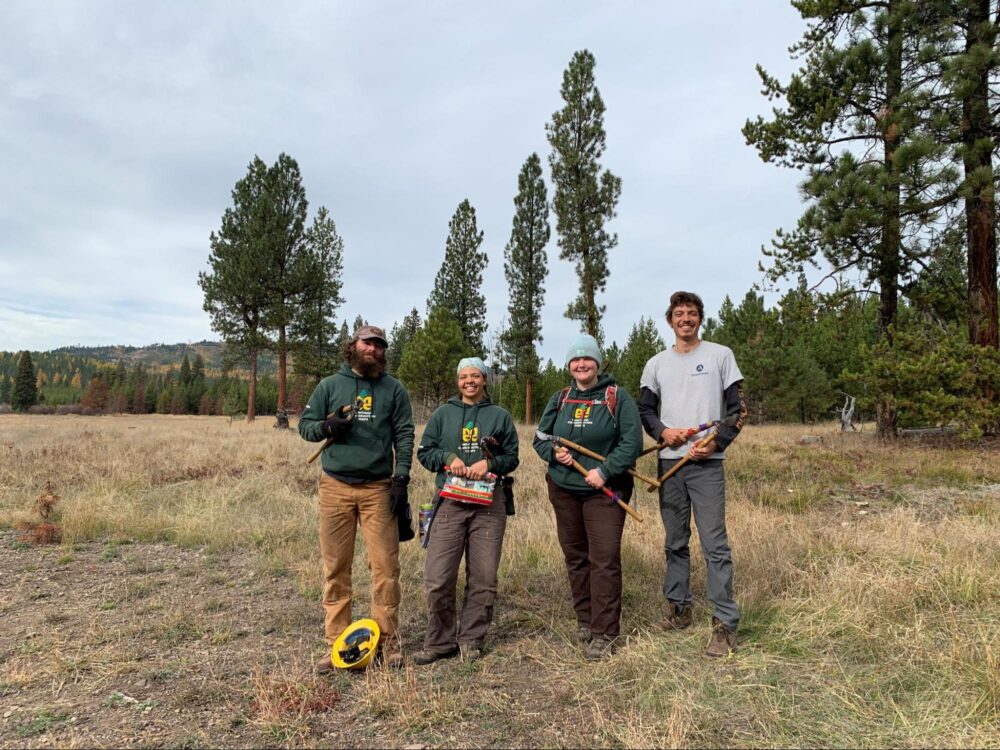We have much more to do and your continued support is needed now more than ever.
ISU Degree Tackles the Many Faces of Climate Change
In May of 2007, Illinois State University’s Board of Trustees approved a new bachelor’s degree program in renewable energy. ISU is not the first school to bring this sort of program into its academic catalog; Canton College of Technology in New York launched a similar program in fall of 2006, as did the Oregon Institute of Technology in 2005. Other schools such as Butte College in California, winner of NWF’s 2008 Chill Out competition, offer associate degrees and certification programs in alternative energy.
However, most of the programs already in place focus solely on the scientific side of renewable and alternative energy studies. By contrast, Illinois State’s new degree program, implemented to combat the many faces of climate change, offers courses that address social, economic, and technical issues of the renewable energy industry, offering a choice between a technology track or one focusing on public policy.
Most renewable and alternative energy programs at institutions of higher learning have traditionally been run out of the chemistry or engineering departments, but a multi-disciplinary approach is increasingly common. ISU’s renewable energy program is based in the university’s technology department, but includes a broad range of courses such as Principles of Economics, Renewable Energy and Agriculture, Politics and Public Policy, and Social Psychology.
One of the great challenges of the rising renewable energy industry has been to find qualified workers to fill increasing gaps in technical training. White-collar workers able to grasp sustainability politics are also needed. Demand is already surpassing supply and a serious shortage of qualified professionals is expected in the near future.
According to the Bureau of Labor Statistics, in 2006 12 percent of jobs in the utilities and energy industries were managerial, business, or financially oriented, requiring little technical training, and 41 percent were in production or installation, maintenance, and repair occupations. It also reports that about half of the industry’s current workforce is expected to retire in the next ten years. Those that come to fill their shoes must be trained to deal with current environmental realities.
Research done by by Roger Bezdek for the American Solar Energy Society claims the renewable energy and energy efficiency industries created a total of 8.5 million jobs in 2006 alone; about 450,000 and 8 million, respectively. By contrast, only a few dozen colleges and universities offer a degree or certification program in renewable and alternative energy, and even fewer take an interdisciplinary approach.
“These growing industries will demand qualified personnel who simply cannot come from within the existing industry workforces – they are simply too small,” claims one of the many resource sites on green job creation, GreenJobs.com. “The training and education of a new cadre of clean energy specialists is essential to underpin the projected growth.”
Rick Boser, chairman of the ISU Technology Department, says the renewable energy major is up to the challenge. “This program helps get the technology on the ground that we can use,” he explains, “which means engineers and technicians and scientists, as well as policy people.”
Funding for the program came from a $1 million grant from the U.S. Department of Energy, which was awarded by an interdisciplinary committee with members in fields ranging from agriculture to solar and wind technology. Boser says, “This grant helped set up a center for renewable studies based at the university and start the major program with an interdisciplinary focus.”
Until recently, a student’s best option for obtaining a specified “green” degree was to attend institutions outside of the U.S., typically studying with international leaders in environmental studies in countries such as Denmark and Germany. It is for this reason that ISU’s new multi-disciplinary program attracts attention.
“To our knowledge,” Boser enthuses, “we are the only school to try this combined technological, economic and political route.”
See More:
Renewable Energy Education Proliferates: Architect
Green Graduate, Seeking Job: Campus Ecology Blog
Riding the Green Job Wave: MSN Encarta




















